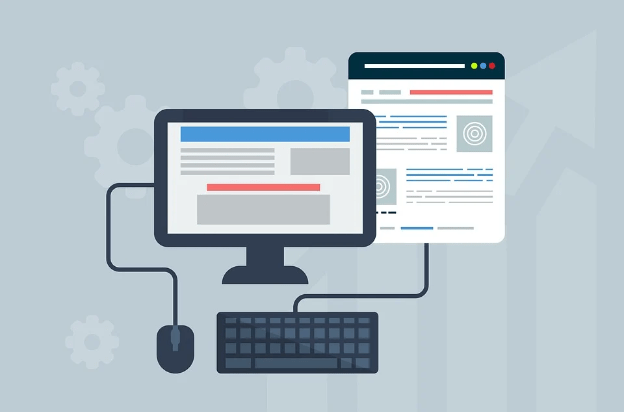Are you ready to take the plunge and launch your own website? Whether it’s a personal site showcasing your portfolio or an online business, there is a lot to consider when building a website. You don’t want to miss any of the essential steps toward creating something that’s informative, attractive, engaging, and secure. This blog post will explore some of their insider tips for designing your first website – so let’s get started right away!
Define The Purpose
To create a successful website, you must start by defining your purpose. The people behind Onestopdevshop know that this is a crucial factor because it determines how the pages should look and what they need to contain. What is it that you want your website to do? Do you want to provide information and resources, or do you want to sell products?
Knowing what kind of business model you’re aiming for can help inform how you design both the look and content of the site. Create a mission statement, consider your audience carefully, and think about the elements — tags, SEO keywords, navigation — that will make it easier for visitors to use the website in the way it was intended. This clear understanding at the outset will give your website the best chance of success.
Get Good Hosting
Finding a high-quality web host is key to your website’s success and longevity. Not only does good hosting ensure faster loading times for visitors, but it also guarantees that your website is safe from unexpected outages.
And when you top this off with a support team that will offer help and advice as you go through the process of setting up your site, you can’t go wrong. With all these considerations in mind, spending a little bit extra on quality hosting can be worth the cost — and make sure that your first website has a long life ahead of it!
Focus On The User
When it comes to creating a website that is successful, user experience should always be top of mind. This means the following:
- make it easy to use
- simple navigation
- responsiveness
- use readable fonts and sizes
- use white space effectively
- use clear and concise language
- images and videos
- provide CTA
- feedback forms
Additionally, making sure to provide content on the website which users find useful and informative will help create an enjoyable overall experience. By keeping the focus on the user when designing your website, you can ensure they enjoy the time they spend on your site, establishing you as a thought leader in your industry.
Design It Well
When it comes to website design, it’s important to consider not just the aesthetics, but also web development elements like user experience and content management — in other words, make sure you’re thinking of functionality as well as the visual look and feel. Creating a good website means taking the time to strategize how you want users to interact with your site; this includes building clean-looking layouts and intuitive navigation links.
Also be sure to include relevant content on each page — including headers, paragraphs, images, and video — that is organized sensible, and draws people in. This can make sure that visitors have a great online experience.
Optimize For Search Engine
An important factor to consider when creating your first website is the optimization of content for search engine results. SEO – or Search Engine Optimization – is a cornerstone of website design and involves ensuring that the content you publish is properly indexed by search engines. During this process, you may want to include keywords in your headings and page copy, as well as create a sitemap so that crawlers can easily locate all the various pages on your site.
Additionally, be sure not to duplicate content across multiple web pages and link back to relevant posts from older writings. If done effectively, these steps will help boost organic traffic to your website from those who are searching for topics similar to your own.
Test And Refine
As a web designer, it’s important to be aware of all the features the site will have and how they may interact with each other during development. But, once the website is built, it’s just as important to make sure everything works properly by testing the various functions before putting it out into the world. This could include proper styling, layout scalability on different devices or browsers, the responsiveness of forms, etc.
Making sure these elements are working properly is what will help give users the best experience possible. Taking some time for testing and refinement can thus make or break a website!


